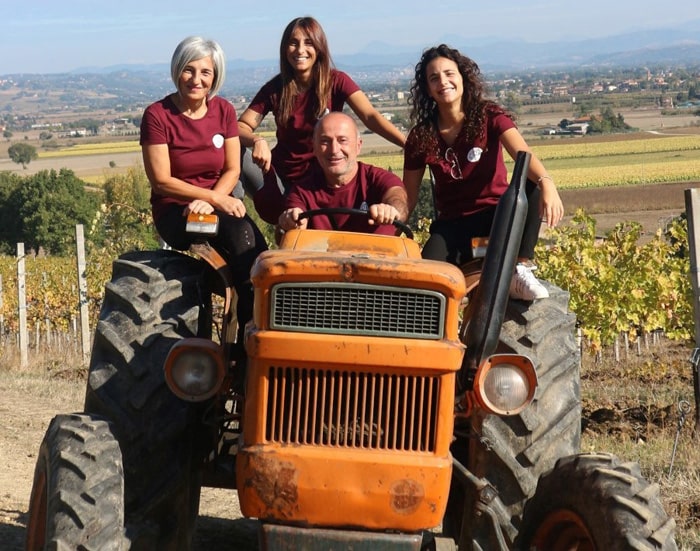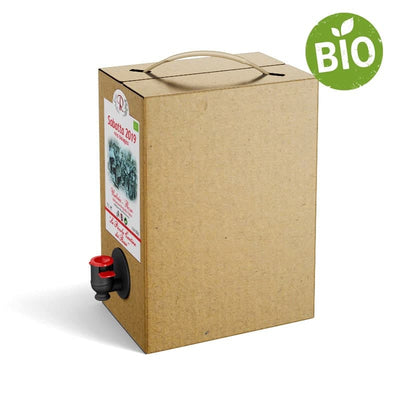
Piccola Cantina dei Rossi extends over a hilly area of about 5 hectares, the first "gentle" hill, at the foot of the tiny charming village of Castello delle Forme, in the municipality of Marsciano in the province of Perugia. It consists of 4 hectares of vineyards, planted in different periods from 1990 to 2007 and about 1 hectare of olive grove. Cultivated with natural organic methods and certified by ICEA Perugia, they have been naturally covered with grass since 2001, with a choice consistent with our naturist and sustainable spirit of company management, without using pesticides, chemical fertilizers, pesticides and herbicides in the vineyards . The perfect exposure of our vineyards "sun all day" guarantees a perfect and healthy ripening of the grapes, in a natural environment, thus giving the wines a marked character of "naturalness", now rare to find.
Let's find out together
The family and history

Let's find out together
The family and history
Umbria. Here is the small organic and natural farm Piccola Cantina dei Rossi, where the vigneron Giampiero, helped by his wife Paola and their daughters, manages this family farm that has been producing wine for generations, with 2001 as the first officially bottled vintage. Certified organic since its inception and a member of Vinnatur, the company covers approximately 4 hectares where we find both the most typical varieties of Umbria, such as Ciliegiolo, Sangiovese, Grechetto and Trebbiano Spoletino, as well as others that over the decades have naturalised, such as Merlot, Cabernet Sauvignon, Montepulciano, Sauvignon Blanc and San Colombaro. Giampiero firmly believes in respect for the soil and the ecosystem and in a non-interventionist approach to the cellar rooted in ancestral experience and scientific knowledge. Its motto is "come and rediscover the taste of wine made with grapes". All his wines cannot fail to arouse a true and unforgettable sensory and emotional experience, as they are imbued with strength, purity, sincere rusticity and nuanced elegance, as well as being marketed years after the harvest only when Giampiero believes the time has come.



 Umbria, Italia
Umbria, Italia